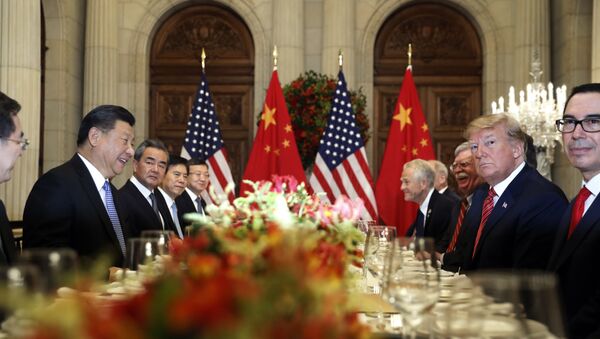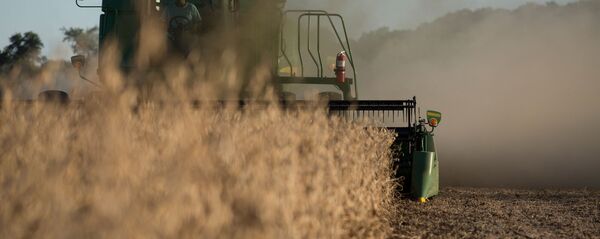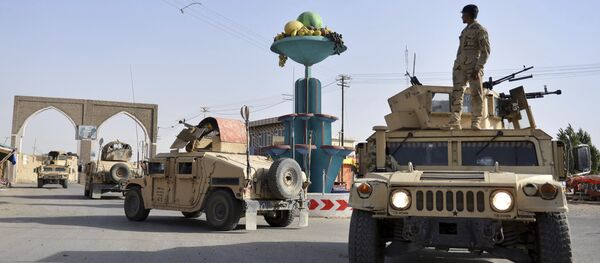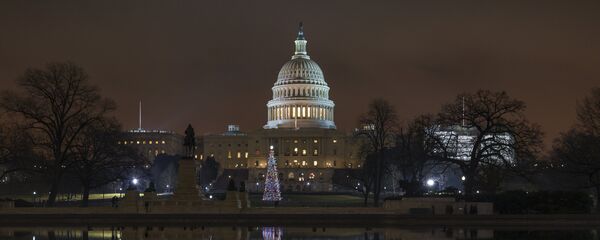Sputnik has discussed US-China trade talks with Don Roose, president of an Iowa-based broker US Commodities.
Sputnik: Why is China considering importing $30 billion of US agricultural goods, what's your opinion about this?
Don Roose: I think it's a moving target. It's a big number. The balance of trade is a negative for the US and our whole push has been to get the balance of trade back to some kind of a more of a balance over the next five years. And probably a bigger issue is the IT and IP protection, but also within that negotiation we're talking about a big number. $30 billion is a huge number.
They've targeted 10 items and agricultural is in there as far as purchases, but to put it into perspective, last year we were more like $19.7 billion of trade with China that they bought. So you're talking about jumping from basically $20 billion to $50 billion. So that's a large number and I think that's still very much a work in progress.
Sputnik: Apart from the United States, China also buys agricultural goods from various markets, like Brazil, Russia and other big agricultural nations. So what consequences can this move have on Brazil and other agricultural markets?
READ MORE: Preparing to Invade China? US Air Force Drills With B-2, F-35, F-22
Sputnik: Some experts, some analysts have called this proposal like the deal to end the trade war. Do you think these $30 billion have the real potential to break this deadlock in US-China relations?
READ MORE: US Losing Global Leadership Role to Russia, China and Iran, German Media Claims
So I think it's a large number, I think that China is a very savvy negotiator and thinker and I think it's going to be interesting how this goes forward, but our best guess is they will probably push the negotiations past the March 2 deadline where our tariffs are supposed to go from 10% to 25% on China.
Sputnik: You've mentioned that Chinese are savvy negotiators, so my question is, is this proposal the result of Trump's trade tactics or is it basically the Chinese being quite generous to the United States agricultural market in order to finally find a solution?
Sputnik: Terry Branstad is the US Ambassador to China and at the same time he used to be the governor of your state of Iowa, do you think it was his idea to maybe encourage Chinese investors to look at the agricultural sector of soybeans and other agricultural goods in order to find some solution?
Don Roose: Well, I do know Terry Branstad, he's a good guy. He was the governor for a number of years and I was over and visited with him in May actually, sat down with him.
READ MORE: Huawei CFO Arrest is Part of Bigger US-China Confrontation — Researcher
He is very savvy, very political, coming from an agricultural state I'm sure that he had a positive influence on that because he comes from a farm background himself and he's had a long relationship with Xi. So I think that all of those things, he helped probably agriculture, he helped grease the wheels for talks that are positive and I think he was a big influence in my mind.
The views expressed in this article are solely those of Don Roose and do not necessarily reflect the official position of Sputnik.







